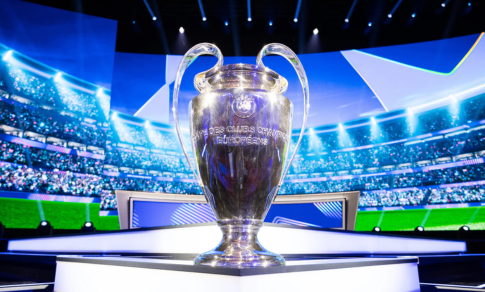UEFA's response to the Super League controversy has led to a controversial overhaul of the Champions League, creating a system that caters primarily to elite clubs and prioritizes profitability over competitive integrity. This new format increases the number of teams and matches, allowing for more interactions between top clubs and simplifying their path to the later stages of the tournament. The result is a shift away from quality and unpredictability, favouring a model that promises greater content and revenue but lessens the sport’s competitive spirit.
The revamped Champions League resembles a commercial juggernaut rather than a competitive sporting event. UEFA's strategy seems to mirror a slogan of "more teams, more games, more profits," focusing on maximizing television exposure and financial gains. This approach effectively transforms the competition into a vehicle for generating content, reinforcing the dominance of wealthier clubs and ensuring that high-profile teams remain prominently featured in the latter stages of the tournament, regardless of their performance in domestic leagues.
The reform has significantly widened the gap between top clubs and their less affluent counterparts, eroding the competitive balance that once allowed for surprising upsets. Historically, clubs like Ajax and Porto could challenge the giants of European football, but with the increased financial disparity, such surprises are becoming rare. This growing divide diminishes the element of unpredictability that has always been a key appeal of the sport, replacing it with a more predictable and less thrilling spectacle.
UEFA’s new system also appears to exacerbate the very issues it aimed to address, such as the excessive number of games and the over-representation of elite teams. By expanding the competition and increasing the number of encounters between top clubs, UEFA seems to prioritize content over competition, effectively reducing the likelihood of surprises and undermining the excitement that comes from genuine underdog stories.
The evolution of football from a sport with roots in community and camaraderie to a commercial enterprise driven by television deals is evident in these changes. The shift began with the introduction of professionalism and evolved through various phases, culminating in the Champions League's current format. This commercialization has led to a scenario where the sport is increasingly seen as a product rather than a competitive endeavor, catering to a global audience with a focus on maximizing revenue.
UEFA’s current approach reflects a broader trend of prioritizing financial gain over sporting principles. The organization’s concessions to wealthy clubs, in an effort to fend off the Super League, have resulted in a format that benefits the elite while marginalizing smaller teams and reducing the overall competitive balance. The essence of football, characterized by its capacity for surprise and fair competition, is being overshadowed by a focus on generating content and revenue.
Ultimately, UEFA’s new Champions League format raises questions about the future of European football. The organization faces a critical decision: whether to continue supporting a model that increasingly undermines the sport’s integrity or to reassess its approach in favor of a more balanced and competitive structure. As the sport evolves into a content-driven spectacle, the true spirit of football—its unpredictability and connection to the community—seems to be at risk.








ADD A COMMENT :